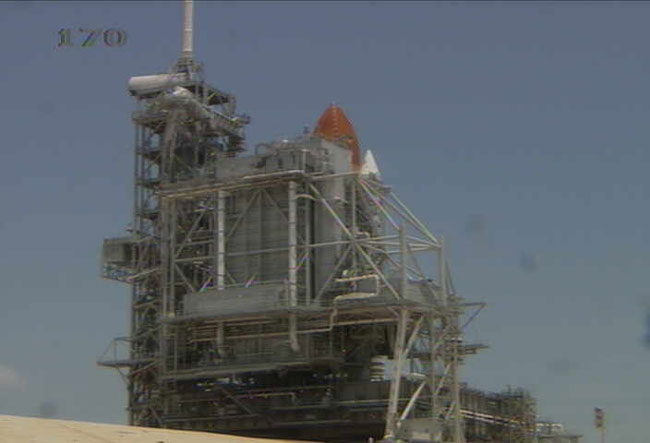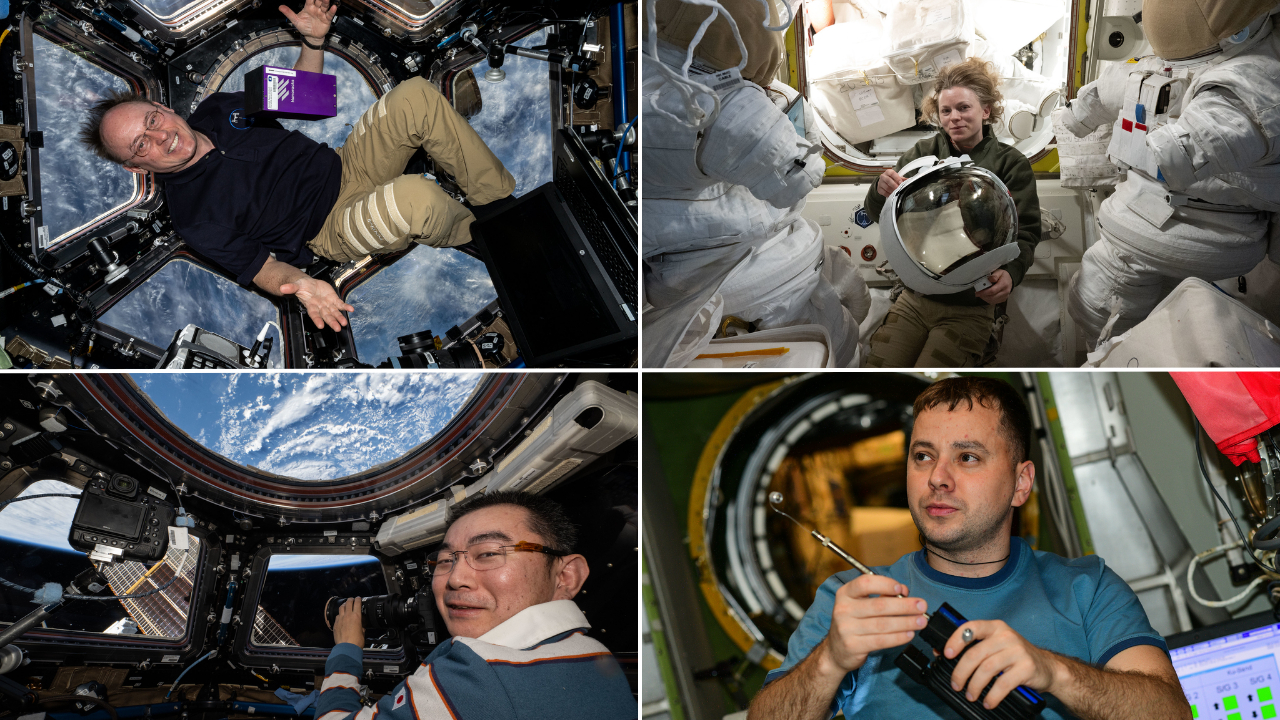Weather Still a Concern as Shuttle Countdown Continues

CAPE CANAVERAL, Fla. - With just two days remaining before NASA's shuttle Discovery rockets toward the International Space Station (ISS), a poor weather outlook continues to plague the planned space shot, launch officials said Thursday.
There remains a 60 percent chance that Discovery's STS-121 astronaut crew will not be able to launch Saturday due to expected afternoon thunderstorms and thick clouds, shuttle weather officer Kathy Winters said during a status briefing here at NASA's Kennedy Space Center (KSC) spaceport.
"We're looking at very similar weather for all three days," Winters said of the first three launch opportunities - July 1 through July 3 - for Discovery's STS-121 mission. "Mainly, on launch day, we're really going to be watching the weather coming in from the ocean here at KSC."
Discovery is poised to launch spaceward at 3:48:37 p.m. EDT (1948:37 GMT) on July 1. The shuttle's STS-121 mission, commanded by veteran shuttle astronaut Steven Lindsey, will be NASA's second orbiter flight since the 2003 Columbia tragedy.
The 12-day mission calls for Discovery's seven-astronaut crew to deliver vital supplies to the ISS, fix the orbiting lab's railcar system, and test shuttle heat shield and inspection techniques.
Weather rumblings
Storms have already made their presence known at Discovery's Pad 39B launch site.
Breaking space news, the latest updates on rocket launches, skywatching events and more!
On Tuesday afternoon, lightning struck near the launch pad's perimeter and tripped two circuit breakers. NASA received a report of hail in the area, but it was not confirmed, the agency said.
Initial inspections by pad workers found some damage to electrical equipment related to the liquid hydrogen operation, but the Discovery shuttle itself was untouched.
NASA test director Pete Nickolenko said the damage and lightning strike will not affect Discovery's Saturday launch plan.
"There were a couple of circuit breakers that did pop and we had to change out, but that poses no issues for us for the conduct of the launch count," Nickolenko said.
Nickolenko said pad workers will begin loading Discovery with its super-cold liquid hydrogen and liquid oxygen fuel at about 1:00 p.m. EDT (1700 GMT) today. The process is expected to take about seven hours, with main engine tests on tap after the fuel loading is complete.
Sensor plan
Meanwhile, NASA launch officials are sticking firm to a plan to launch Discovery with four, fully functioning engine cut-off (ECO) sensors in the liquid hydrogen portion of the orbiter's external fuel tank. The sensors are responsible for shutting Discovery's engines down before the fuel tank runs dry.
Last year, space shuttle managers opted to launch Discovery's STS-114 mission with a known glitch in its ECO sensor system.
This time, however, all four sensors in the liquid hydrogen tank - which rest at the bottom of Discovery's 15-story external fuel tank - have been swapped out with brand new versions.
"These are new sensors, and they are the best sensors," Nickolenko said.
Launch controllers and shuttle managers will only discuss changing the four-working-sensor rule if the Discovery scrubs its July 1 launch date, Nickolenko added.
- Gallery: STS-121 Crew Trains for Launch
- Shuttle Discovery: Complete Mission Coverage
- The Great Space Quiz: Space Shuttle Countdown
- Great Space Quiz: Life in Orbit

Tariq is the award-winning Editor-in-Chief of Space.com and joined the team in 2001. He covers human spaceflight, as well as skywatching and entertainment. He became Space.com's Editor-in-Chief in 2019. Before joining Space.com, Tariq was a staff reporter for The Los Angeles Times covering education and city beats in La Habra, Fullerton and Huntington Beach. He's a recipient of the 2022 Harry Kolcum Award for excellence in space reporting and the 2025 Space Pioneer Award from the National Space Society. He is an Eagle Scout and Space Camp alum with journalism degrees from the USC and NYU. You can find Tariq at Space.com and as the co-host to the This Week In Space podcast on the TWiT network. To see his latest project, you can follow Tariq on Twitter @tariqjmalik.
